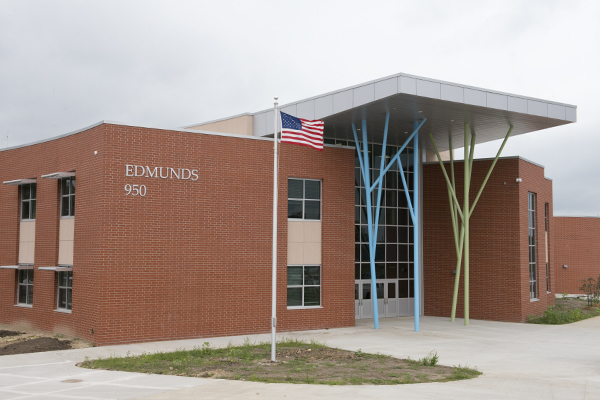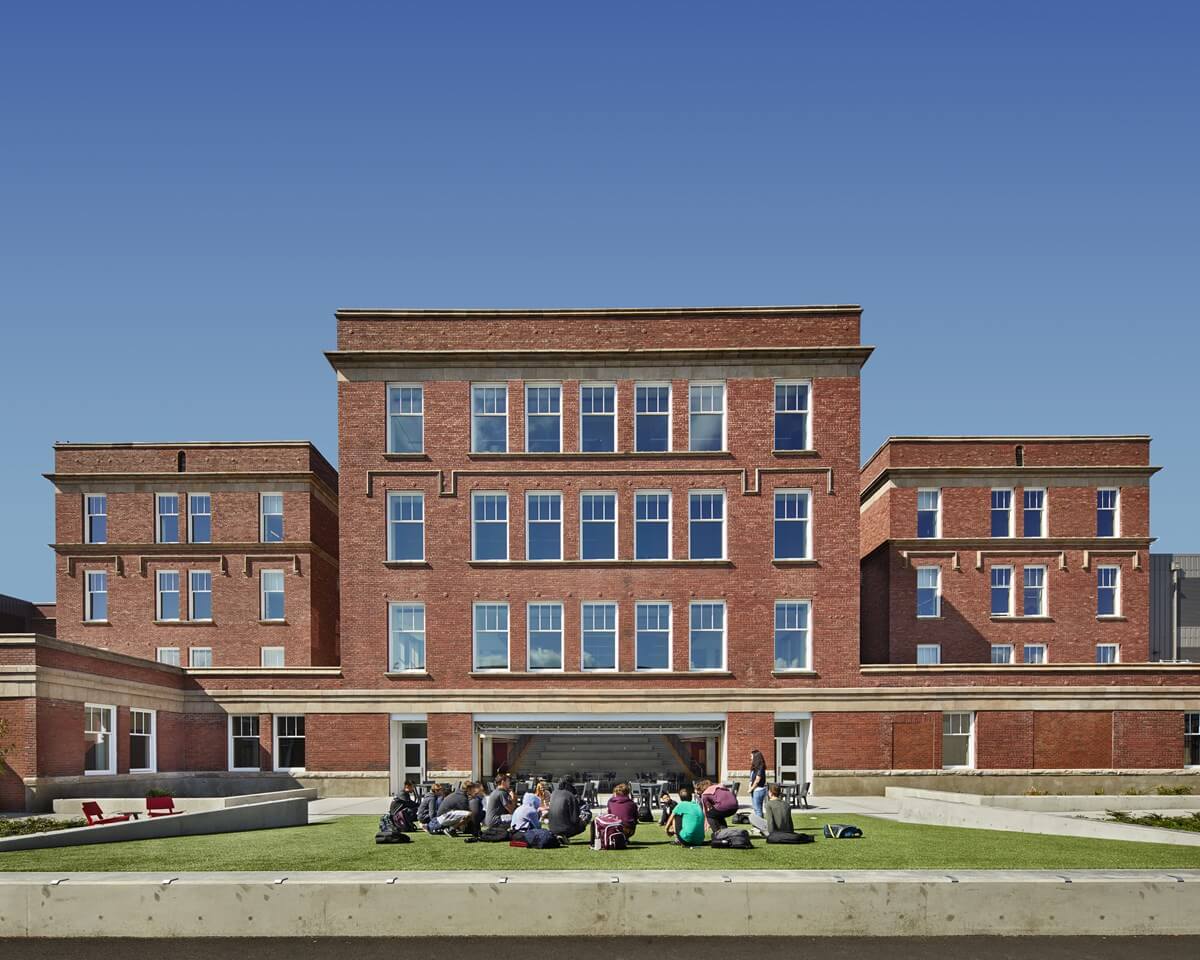Ingenious Solutions to Save Temecula Schools from Budget Plan Cuts
Ingenious Solutions to Save Temecula Schools from Budget Plan Cuts
Blog Article
The Impact of Institution Environments on Academic Success and Personal Well-Being
The school environment considerably influences both scholastic success and individual wellness, incorporating components such as physical format, classroom atmosphere, and interpersonal dynamics. The style of academic rooms, consisting of all-natural lighting and ergonomic furniture, can enhance trainees' focus and convenience. Moreover, the quality of teacher-student connections and the nature of peer communications play critical duties in cultivating an environment for finding out and psychological support. Recognizing how these numerous elements interplay to form student end results increases vital questions regarding optimizing academic settings for holistic development. Exactly how can institutions tactically boost these aspects to better sustain their pupils?
Physical Design and Layout
Just how does the physical design and style of a school influence scholastic success? The arrangement and aesthetic of a school setting can substantially affect pupils' learning outcomes.
Natural lighting and reliable air flow systems are crucial in boosting cognitive feature and reducing absenteeism. Researches have actually revealed that class with adequate natural light enhance student concentration and decrease sensations of sleepiness. Furthermore, ergonomic furniture customized to students' needs can protect against physical discomfort, permitting extended emphasis and engagement in scholastic tasks.
Accessibility to outdoor spaces and visually pleasing surroundings also play a critical function - Save Temecula Schools. Environment-friendly spaces and properly maintained school premises offer opportunities for physical workout and mental relaxation, both of which are essential for preserving high degrees of academic performance. Fundamentally, a thoughtfully designed physical atmosphere can serve as a driver for scholastic quality, cultivating an atmosphere that supports both teaching and learning
Classroom Atmosphere
A favorable class environment is basic to accomplishing scholastic success. A setting that cultivates a feeling of security, inclusivity, and shared regard motivates students to involve even more proactively in their learning processes. The setting of a class, consisting of facets such as lighting, sound levels, and seating arrangements, can considerably affect trainee focus and motivation. A well-ventilated, well-lit classroom with minimal interruptions can improve cognitive feature and lower stress and anxiety, thereby promoting far better scholastic end results.
Moreover, the class ambience should support a society of cooperation and open communication. When students feel comfortable expressing their ideas and asking questions, they are much more likely to engage deeply with the material and develop vital assuming abilities - Save Temecula Schools. Peer interactions and team activities can boost discovering by providing varied perspectives and promoting team effort
In addition, establishing clear assumptions and consistent regimens can develop an organized environment that allows pupils to focus on their researches. By lessening uncertainty and supplying a foreseeable framework, pupils can much better manage their time and obligations. Inevitably, a positive class atmosphere not only improves scholastic performance but likewise contributes to the general health of students, preparing them for future instructional and personal ventures.
Teacher-Student Relationships
Structure on the relevance of a positive classroom ambience, the relationships between trainees and educators play a pivotal function fit academic success. A healthy teacher-student connection promotes a discovering atmosphere where trainees feel valued, comprehended, and sustained, which here are the findings significantly enhances their motivation and engagement. When trainees view their teachers as empathetic and friendly, they are most likely to get involved proactively in course and look for aid when needed, contributing to a deeper understanding of the subject matter.

This count on makes it possible for students to reveal their ideas and worries freely, cultivating a collaborative understanding environment. In significance, strong teacher-student partnerships are a cornerstone of instructional success, playing a vital function in both scholastic accomplishment and individual advancement.
Peer Interactions
Peer interactions significantly affect scholastic success by forming a trainee's social and cognitive growth. Within the institution setting, peer relationships act as a fundamental part for finding out and personal growth. Favorable peer communications can boost a pupil's inspiration and involvement in scholastic activities with collaborative knowing and shared support. When trainees collaborate in group settings, they exchange concepts, fix problems collectively, this post and develop vital assuming abilities. Such communications promote a sense of belonging and neighborhood, which is necessary for psychological well-being and scholastic perseverance.

Efficient peer interactions additionally contribute to the growth of vital life skills, such as communication, conflict, and collaboration resolution. These social expertises are crucial for both academic success and personal health, underscoring the relevance of cultivating positive peer dynamics within the school setting.
After-school Activities
Participating in after-school activities plays a crucial duty in a student's scholastic success and personal advancement. These tasks, varying from sporting activities teams to question clubs, supply trainees opportunities to sharpen valuable skills such as leadership, time management, and teamwork. Research study continually shows that students who participate in after-school activities often tend to achieve greater academic performance. This correlation is frequently associated to the structured setting and the technique called for to stabilize both extracurricular and scholastic dedications.
In addition, extracurricular participation cultivates a feeling of belonging and neighborhood, which is crucial for individual health. Participating in group tasks permits trainees to build and reinforce social media networks, enhancing their psychological and social knowledge. These communications are important for creating social abilities that are beneficial in both future and academic professional environments.
In addition, extracurricular tasks provide a constructive outlet for trainees to discover their rate of interests and passions beyond the conventional educational program. This exploration can result in the discovery of new abilities and possible profession paths, additionally encouraging trainees to involve more deeply in their scholastic job. To conclude, the role of after-school activities extends beyond mere leisure; they are integral to cultivating a holistic instructional experience that promotes both academic success and individual growth.
Verdict
Thoughtfully created physical designs and class, along with positive teacher-student relationships and positive peer interactions, significantly improve pupil inspiration and engagement. These elements collectively emphasize the relevance of developing and preserving optimal college environments for the benefit of students' scholastic and personal growth.
Eventually, a favorable classroom ambience not only improves academic efficiency yet also adds to the overall wellness of students, preparing them for future instructional and individual endeavors.

Report this page